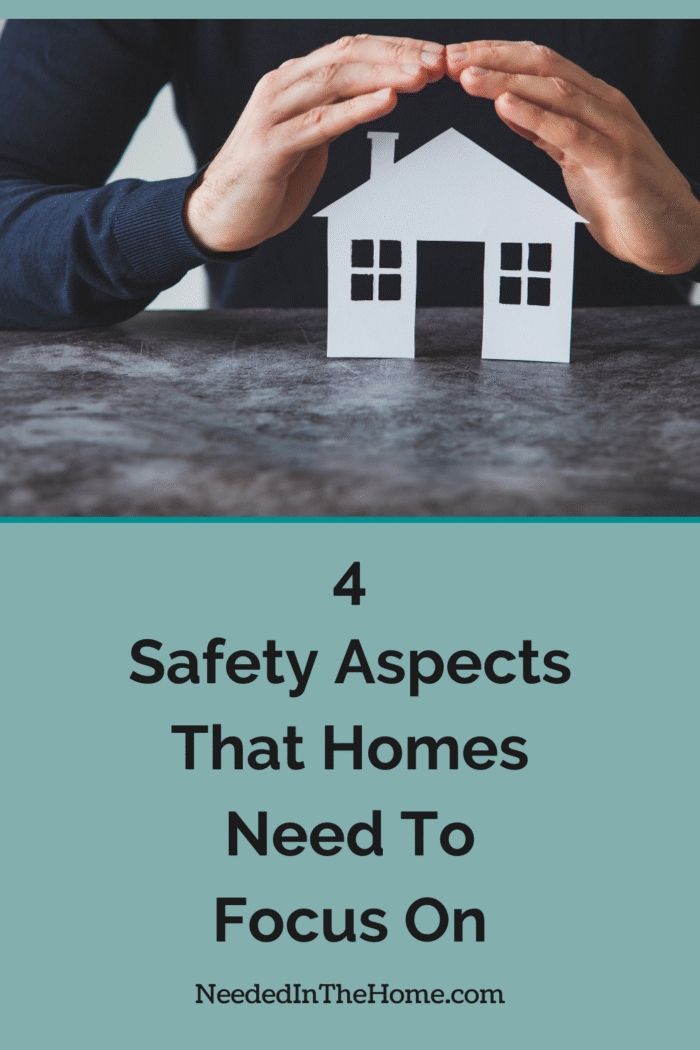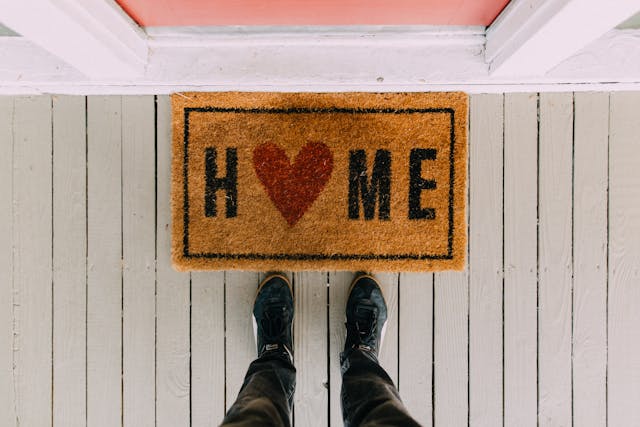
What type of protection does your home have, and how are you keeping your family safe? Protection at home can look like many different things, and ensuring the safety of everyone who lives in or visits your home is paramount, ensuring you can enable you to reduce risks and ways in which people can come to harm.
Let's take a look at a few ways you can protect your family and your property.
Some links in this post are affiliate links, which means I receive a commission if you make a purchase.

Fire Safety
Fire safety measures, such as securing flammable items away from open flames and using properly fitted appliances, not only prevent fires but also provide a sense of security.
Resources like smoke alarms and fire doors further enhance this peace of mind. Consulting fire safety experts can help you tailor these measures to your home, ensuring the safety of everyone.
Locks
Looks are essential for keeping everyone safe at all times, and they can be multipurpose too. Let's take your windows and doors. The locks you install can keep intruders out and the family safe inside, knowing that random people cannot walk up and into your home. Internal door locks can prevent kids or pets from accessing certain areas of the property that might cause them harm. For example, babies might hurt themselves going down open stairs via a door to the basement, or pets might find themselves ill from ingesting chemicals in the laundry room or eating chocolate from a cupboard. Locks, in these instances, offer internal security to promote safety and restriction for everyone's best interests.
First-aid Kit
A first aid kit is vital for accidents and injuries that require medical attention. There are many ways someone can require medical attention in an emergency, whether it is health conditions or injuries, a first aid kit can help keep everyone safe until assistance arrives. From bandages to band-aids, wound dressings, and more, first aid should be an essential piece of kit for any home for safety.
Electrical and Gas Safety
Your electrical supply and your natural gas supply are both extremely dangerous and gas, especially, can be highly volatile. Assuming you get your electrics checked periodically to ascertain their health and condition can help you reduce the risk of electrical fires within the home and ensure your gas-supplied appliances are fitted correctly and that your pipework is in good working order, which can reduce the risk of a gas explosion. Carbon monoxide monitors, gas leak detectors, and GFCIs in areas prone to flooding can help to provide you with added peace of mind that should anything go wrong with your electrics or gas supply; you have a warning in place to alert you of any issues.
Protecting your home and its occupants means being aware of the risks, implementing suitable prevention methods, and being ready should the worst happen. From living first aid kits for medical emergencies to preventing fires and damage to electric and gas supplies, understand how you can encounter danger in the home to make it safe to live in.
This is a contributed post.
More From NeededInTheHome
Product Reviews
Get Our Books
Etsy Shop
TPT Store
eBay Store
Linktree
My Faith Testimony
Subscribe so you never miss a post.
If you find my tips useful, feel free to buy me a coffee. Thank you in advance!
Want to remember this? Pin it to your favorite Pinterest Board!

Join the newsletter
Subscribe to receive our latest articles and promotional content by email from NeededInTheHome
Leave a Reply